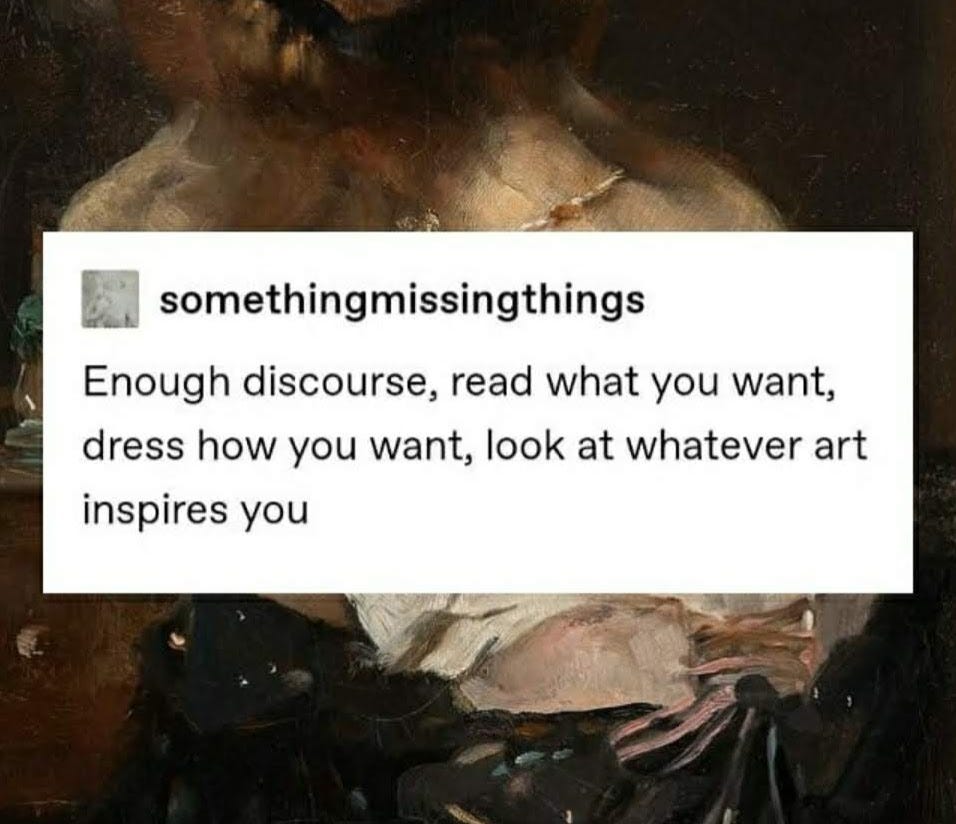
It’s the dawn of a new year, so let’s have ourselves a desert dispatch listicle!
There’s a lot of conventional wisdom about when to give up a book. I’m here to tell you that it’s wrong.
Some readers use the “100 minus your age” rule to determine what page to read to before deciding to drop a book. Others read until a predetermined page number — 50 and 100 pages are common choices. Still more insist on reading a book from cover-to-cover, even if they loathe it.
According to this ancient survey from Goodreads, readers stick with books far longer than they should. Can you believe almost 40% of readers read a book to the end even if they don’t like it? That sounds exhausting.
If you’re looking for a list of reasons why you might stop reading a book, or if you just want to gripe alongside fellow “abandoners” then you’ll enjoy this litany of lament from reddit.
What you need to do in deciding whether to keep reading a book is to follow your gut. If you think a book is good or if you think it gets better, keep reading. A slow book isn’t a bad book. However, if you’ve lost interest in it, drop it. Don’t suffer and don’t slog through it.
That’s it. That’s all the wisdom you need. If you don’t enjoy it, stop reading it. No matter what friends, family, or the internet might tell you. You’re allowed to stop reading a book whenever you please.
Whether you’re reading a fantasy novel, an historic doorstop, or even this article, if it isn’t holding your attention then that probably isn’t your fault. It is either the author’s fault for not writing a more engaging book or the book you’re reading just isn’t for you. Sometimes a book comes to you at the wrong time - that happens. Set it down and come back to it later. Regardless, you should have a real sense of a book from page one, paragraph one, and sentence one. If you don’t, don’t blame yourself.

Here are a few things to keep in mind when deciding to drop a book you’re just not into:
Only read a book if you find it enjoyable.
Don’t read it because you think you have to or because “everyone else” is reading it. Enjoyment is a personal choice and remember that just because a book is hard or a challenge, doesn’t mean that it isn’t enjoyable or worth the effort. Sometimes the enjoyment is “because it’s a challenge” and that is valid, too!No great book starts off bad.
If a book that starts off bad is considered great then that book isn’t great. Period. We can all interpret bad as we want, but personally bad is synonymous with poor writing or pacing, no immediate sense of place, and a lack of even minimal context.You don’t understand what’s going on.
That is quite possibly the author’s fault and not yours. Yes, it’s possible to read the right book at the wrong time, but it’s more likely that what you’re reading is just not for you - at the present or maybe ever. Sometimes authors deliberately confuse readers for narrative purposes - but that’s different. If the writing is just flat muddled, well, chuck it. You don’t spend the effort to read confusing tweets, so don’t spend the time to read confusing books.You lack the proper context
This one is connected to #3, but it’s its own separate problem. How often have you picked up a book, particularly a classic, and found yourself needing a separate college degree to even finish the first chapter? Sometimes you’re game for that, and sometimes you don’t want to put in that much effort. A lot of works have annotated versions for a reason. However, these books, if a reader is ready to do battle with footnotes, can be the most rewarding experience of all.You’re thinking about a different book instead of the one you’re reading.
This is, weirdly, one of the best feelings to have as a reader, because it means you desperately want to read and you know exactly what you want to read. If you want to read something else then read something else. How often have you eyed a stack of books you felt obligated to read when all you wanted to do was read that new biography or re-read one of your all-time favorites? Ditch the worry and embrace the wanted.

Whatever you’re spending your free time on — whether book, film, or TV series — it should be obvious from the beginning that it’s good, interesting, or worth the time. Sure, some stories take time to develop, but the potential or the seed of greatness should already be there. If it isn’t, move on.
Can a book “get good” eventually? Sure, in the same way a TV show can “get good” by the third or fourth season. Whether or not to put in that investment is up to you.
If you read the first chapter, the first five pages, or even just the first paragraph, and found that the book didn’t hook you? Drop it. Besides, don’t you have so many other books you’d rather be reading?


